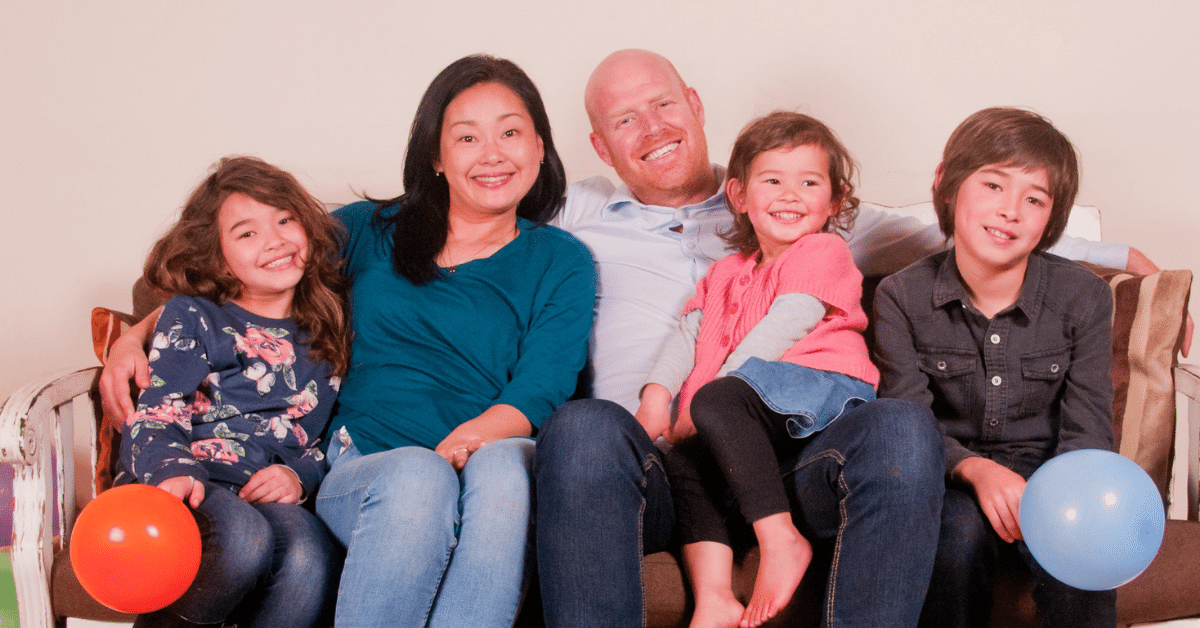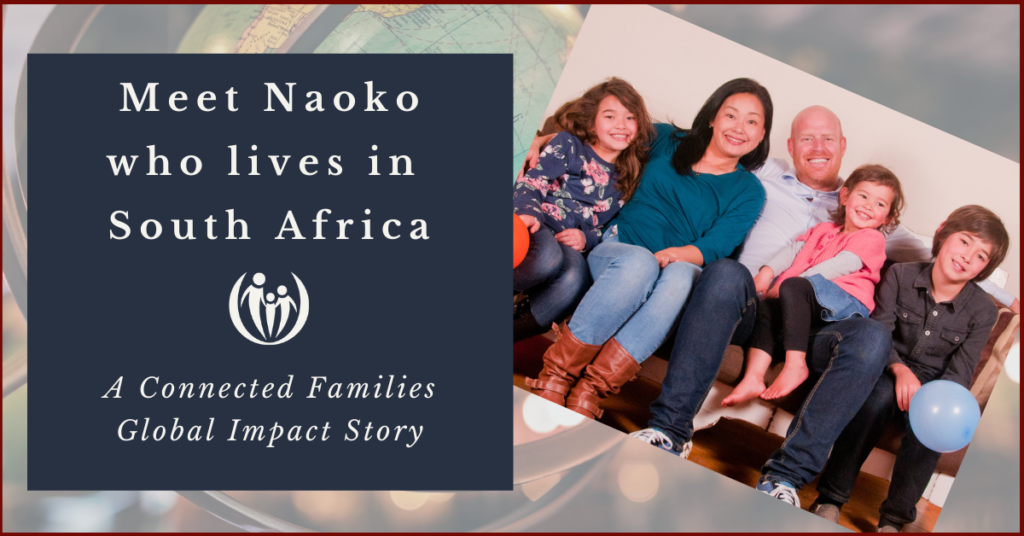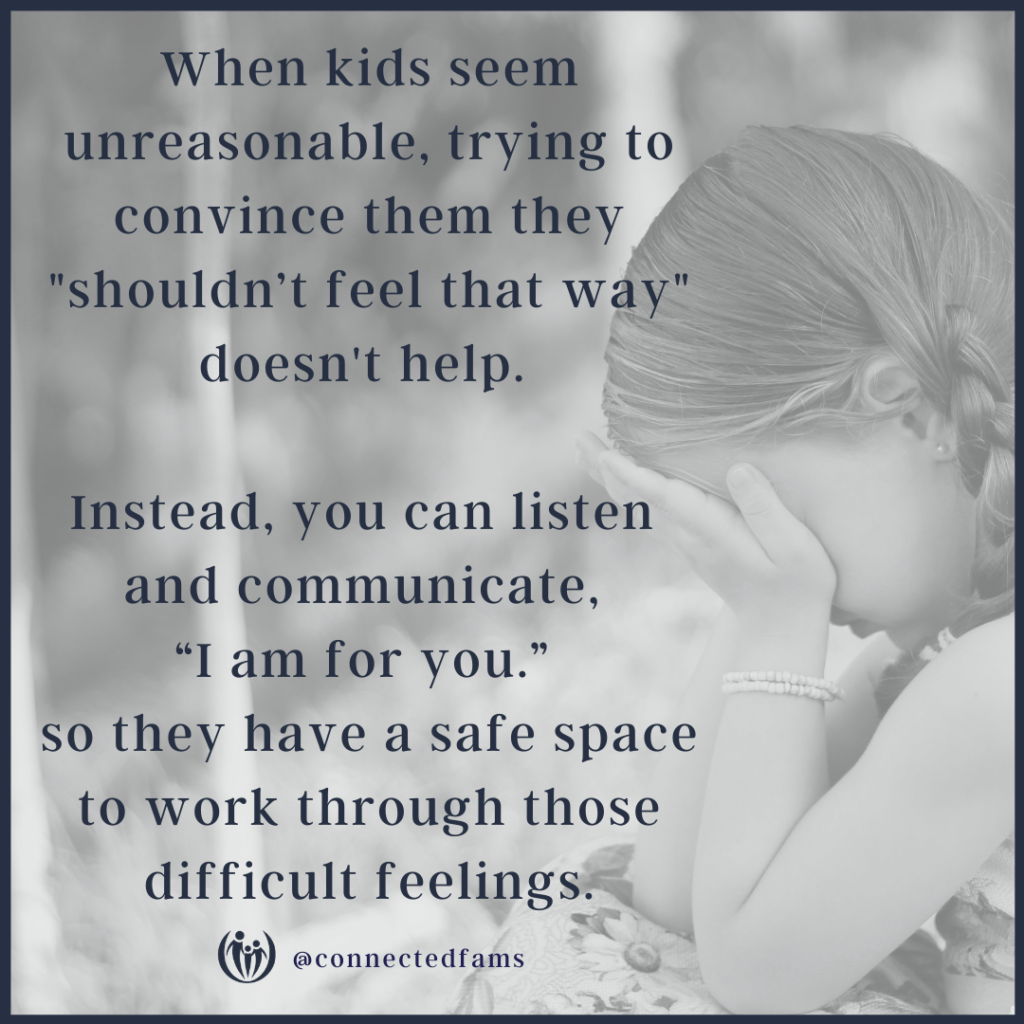
Meet Naoko who Lives in South Africa

For nearly twenty years, Connected Families has been equipping and empowering parents to lead their families with grace. As a tumultuous 2020 comes to an end we are excited to introduce you to families around the world who are embracing the Connected Families Framework in their home. Connected Families is transforming, equipping, and inspiring families all over the globe!
Today we’d love to introduce you to Naoko who lives in South Africa. Naoko was born in Japan and her husband is Afrikaans, from South Africa. She and her husband lead a congregation in a university town (Stellenbosch, South Africa). They work with families and university students. Naoko and her husband are part of a big team of church leaders, and she facilitates a parenting course, mainly to the parents in their congregation. We are excited to tell you how she and her husband are merging the two cultures within their home into one culture of connection.
What has been the one major take-away you’ve learned and how have you applied that?
I have become more aware of creating ‘safe’ space for our children. This means I am more aware of listening to them carefully and being more sensitive to their emotional needs.
I am also more aware in our pastoral context that when people are not being reasonable, and being offended by others, that trying to convince them not to get offended for the things that aren’t a big deal doesn’t help. Instead, I should create a safe space for them to listen to them and to make sure that they know I am for them.

Do you have a story that exemplifies what you’ve learned?
In the Discipline That Connects with Your Child’s Heart online course, the video clip of a toddler crying and his mom verbalizing his feelings to acknowledge his emotion was amazing! She advised him to take a big breath to calm down. When my 5-year-old daughter got upset because her friend pushed her on a trampoline I could acknowledge her feelings. (He was just being a boy and playing rough, not trying to be mean to her.) She was upset with the situation and could open up to me to tell me what she experienced. If I hadn’t been made aware that acknowledging her emotions was important, I could easily have just told her to stop crying.
What is the primary culture in your family’s home life?
I am from Japan and my husband from Afrikaans (white farmer culture in SA). Because of this we have two different cultures at home. However, as Christ-followers we are living in the Kingdom culture. This helps us to adjust our way of doing things to fit into what New Testament living might look like.
Both my husband and my parenting styles were so different 10 years ago than they are now. Seeking the Kingdom of God first is helping us to understand each other, our differences, and how we can better connect with our children. I homeschool two of our three children (the older kids). Spending lots of time together with our kids has been very helpful for bonding with them. I am naturally strong in setting boundaries, so that helps us to not have so much drama over small things.
How does the CF framework fit with your culture?
The culture in our house, especially in parenting, isn’t built upon either Japanese nor Afrikaans culture. Rather, it’s built on a Kingdom/biblical culture. Therefore, the CF framework fits our culture perfectly.
In your experience, what has been the value of the framework from a cultural perspective?
My husband and I agree on the Connected Families Framework. We also agree on the messages we want to send to our kids. Every practical tip has been of great value in creating a culture in our home of listening and connecting. Having the framework has allowed us to focus on the culture within our own multicultural family and blend the best of both the Japanese and Afrikaans cultures. Together we are learning to lead our family with grace.
Want to learn more about these concepts? Download our one-hour recording of a Discipline That Connects workshop.

